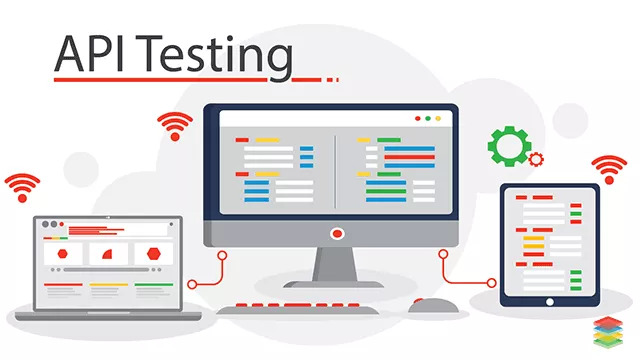接口测试框架实战(三)| JSON 请求与响应断言
原创 Hogwarts 6月22日
来自专辑
测试开发实战干货 | 原创合辑

本文节选自霍格沃兹《测试开发实战进阶》课程教学内容,进阶学习文末加群。
JSON 请求
在接口的请求中常常会碰到需要发送 json 格式的请求,这种情况下,既可以使用关键字参数 data,也可以使用关键字参数 json 来传递 json 请求。
JSON 请求的发送
使用 data 关键字发送 json 请求,需要使用 json.dumps 对传入的变量进行转码:
>>> import json
>>> import requests
>>> r = requests.post('http://httpbin.org/post', data=json.dumps({'key': 'value'}))
>>> print(r.request.headers)
{'User-Agent': 'python-requests/2.22.0', 'Accept-Encoding': 'gzip, deflate',\
'Accept': '*/*', 'Connection': 'keep-alive', 'Content-Length': '16'}
使用 json 关键字参数发送请求:
>>> import requests
>>> r = requests.post('http://httpbin.org/post', json = {'key':'value'})
>>> print(r.request.headers)
{'User-Agent': 'python-requests/2.22.0', 'Accept-Encoding': 'gzip, deflate',\
'Accept': '*/*', 'Connection': 'keep-alive', 'Content-Length': '16',\
'Content-Type': 'application/json'}
对比两次请求可以看出,如果请求的参数选择是 json ,那么 “Content-Type” 自动变为 “application/json”。
JSON 响应断言
在之前的的章节已经简单介绍了如何断言接口的响应值,而在本章节,主要介绍如何通过 JsonPath 解决断言问题。JsonPath 提供了强大的 JSON 解析功能,使用它自带的类似正则表达式的语法,可以更便捷灵活的用来获取对应的 JSON 内容。
JsonPath 语法
工欲善其事必先利其器,如果想要很好的使用 JsonPath,必须先对其语法有一定的了解。可以看到下表还加入了 XPath 进行对比,这两者的定位方式,有着非常多的相似之处。
XPath JSONPath 描述
/ $ 根节点对象/元素
. @ 当前的对象/元素
/ . or 匹配下级元素
… n/a 匹配上级元素,JSONPath不支持
// … 递归方式匹配所有子元素
-
- 通配符,匹配所有对象/元素,无论其名称如何
@ n/a 属性访问,json结构体没有这个特性.
下标运算符。JSONPath从0开始
[,] 连接的操作符,多个结果拼接成列表返回
?() 过滤器(脚本)表达式。
n/a () 脚本表达式,使用基础脚本引擎。
- 通配符,匹配所有对象/元素,无论其名称如何
比如同样一个字段,XPath 中的语法是:
/store/book[0]/title
JsonPath 的语法是:
$.store.book[0].title$['store']['book'][0]['title']
JsonPath 实战练习
下面是一组 JSON 结构,分别通过 JsonPath 和 XPath 的方式提取出来:
{ "store": {
"book": [
{ "category": "reference",
"author": "Nigel Rees",
"title": "Sayings of the Century",
"price": 8.95
},
{ "category": "fiction",
"author": "Evelyn Waugh",
"title": "Sword of Honour",
"price": 12.99
},
{ "category": "fiction",
"author": "Herman Melville",
"title": "Moby Dick",
"isbn": "0-553-21311-3",
"price": 8.99
},
{ "category": "fiction",
"author": "J. R. R. Tolkien",
"title": "The Lord of the Rings",
"isbn": "0-395-19395-8",
"price": 22.99
}
],
"bicycle": {
"color": "red",
"price": 19.95
}
}
}
下表列出了 XPath 与 JsonPath 的对比:
| JSONPath | 结果 |
|---|---|
| $.store.book[*].author | store中所有book的author |
| $…author | 所有的author |
| $.store.* | store中所有元素 |
| $.store…price | store中所有的price |
| $…book[2] | book列表中的第三个 |
| $…book[-1:] | book列表中的倒数第一个 |
| $…book[:2] | book列表中的前两个 |
| $…book[?(@.isbn)] | 所有有isbn的book |
| $…book[?(@.price<10)] | 所有价格低于10的书 |
| $…* | 所有json结构体中的元素 |
Python 与 JsonPath 组合断言接口
环境准备:
pip install jsonpath
下面是一个 get 请求实现了,断言响应值中 login 字段为 VipMagic 所对应的 node_name 为“性能常识”。
import requests
from jsonpath import jsonpath
r = requests.get(\
"https://testerhome.com/api/v3/topics.json?limit=2").json()
assert jsonpath(r, \
"$..topics[?(@.user.login == 'VipMagic')].node_name")[0] == '性能常识'
更多内容,在后面的章节再进行详细的介绍。
